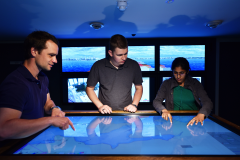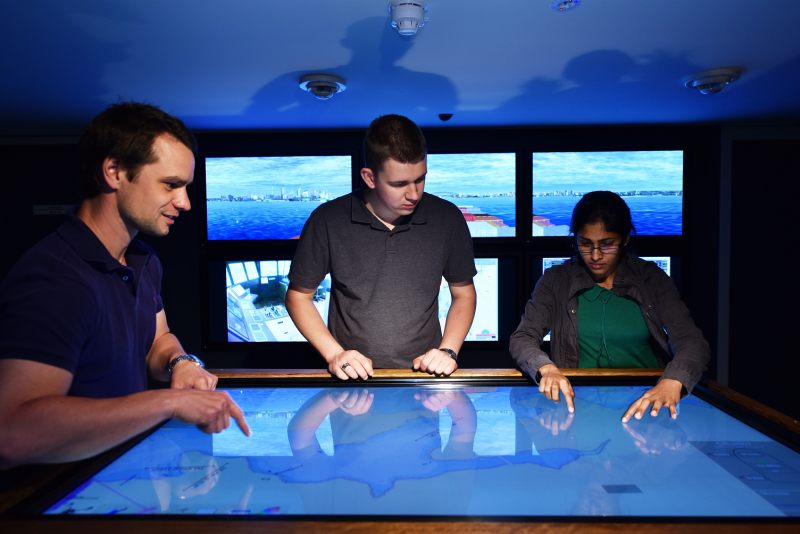Working at sea can be tough. Operating in confined spaces, extreme weather and being far away from help in an emergency all contribute to a challenging environment.
Preparation, in particular for emergency situations, is therefore vital for new seafarers who need to be thoroughly trained for life on board before starting work.
Dedicated training vessels—operational ships that are solely used for training purposes—are ideal but, with operational costs as high as $10,000 a day, they can be prohibitively expensive.
For individuals, cadet placements on operational vessels are one alternative. But a lack of space on board merchant ships means that they are increasingly hard to come by—and almost impossible in countries, such as landlocked ones, that don’t have many ships to begin with.
A well-documented lack of seafarers coming up through the ranks also exacerbates the issue, with those that do qualify often advancing rapidly and often being less experienced in ship handling and manoeuvring than earlier generations.
For these reasons, many organisations see simulation facilities as part of the solution and are investing in them heavily; the Australian Royal Navy opened a state-of-the-art simulation facility in Sydney earlier this year and AMC itself has recently carried out a $1.4m upgrade to its real-time maritime simulation technology, including a full-mission ship’s bridge, a tug simulator and six ship operations bridges.
But how effective are simulators in preparing seafarers for emergency situations?
Researchers at AMC are attempting to find out and have carried out a pilot study comparing the effectiveness of training on vessels with computer-based and simulated training.
The work is led by Professor Margareta Lutzhoft, who researches ‘human factors’—or how ships and systems should be designed around humans’ capabilities, skills and needs, rather than vice versa.
“This is an area that is just beginning to be researched and it’s so important because maritime systems and processes often fail to consider how people behave, which can lead to inefficiencies and even accidents.
“Simulated training is becoming increasingly relied upon and it is the right time for us to measure its effectiveness compared to on-vessel training.”
Together with her team—Paul Brown, Clarence Pietersz and Siri Hirimbure—Professor Lutzhoft gathered nine first year undergraduate students with no formal seafaring experience.
The students were briefed together on a man-overboard scenario and then split into three groups to undertake training on how to respond.
One group carried out the training on board one of AMC’s dedicated training vessels, Reviresco; another was trained in a full mission simulator at AMC; and the third undertook their preparation in a computer-based training lab.
Three hours later, the students re-grouped on the ship and were individually assessed using standard assessment criteria on their performance in areas including practical tasks, team work and preparation.
How did the students compare?
The results showed that in certain practical tasks such as manoeuvring and positioning, the simulator trained students performed just as well as those on the vessel.
“This suggests that practical tasks can indeed be trained in full-mission simulators without affecting the quality of the results,” said Professor Lutzhoft.
The simulator trained students obtained slightly lower scores in the area of teamwork, whilst the group trained in the computer lab did less well in all areas.
“Other tasks such as teamwork may still need to be trained on board, or we need to better prepare simulator scenarios to ensure we address all aspects of a situation and the appropriate response.”
With the pilot completed, Professor Lutzhoft and the team are undertaking further research to detail exactly which tasks can and should be trained ashore.
They are also looking more deeply into which training and assessment methods are the most effective, a task carried out in close cooperation with AMSA, the Australian Maritime Safety Authority.
Professor Lutzhoft is confident that their work will help further our understanding of how best to prepare seafarers for life at sea.
“By understanding how and why people are best trained for work on board ships, we can provide training that meets their needs, and the needs of the industry, in an effective way.”
Published on: 04 Aug 2016

